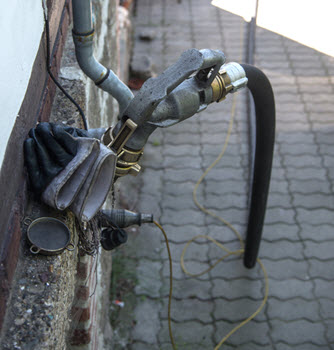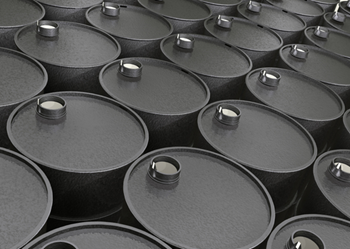Differences Between Oil vs. Gas Fueled Heating Systems For Your Home
 If you have an old heater in your home that has begun to show signs of age, it is probably time to invest in a new unit. The best way to approach this is to determine an affordable amount for the new heater and make a list of the features you feel are most important.
If you have an old heater in your home that has begun to show signs of age, it is probably time to invest in a new unit. The best way to approach this is to determine an affordable amount for the new heater and make a list of the features you feel are most important.
In order to make the right decision, you should use every available resource to gather the appropriate information. For instance, you must give thought to pertinent matters such as whether or not you want to add an air cleaner to the unit and the unit size that is most appropriate for your home.
Fuel choice is another important factor when you are shopping for a heater. Options include oil, natural gas or propane. Additional aspects that affect the decision-making process include the efficiency of the unit you invest in, and of course, the price associated with each type of fuel.
Since homeowners may now have the choice to convert from fuel oil to natural gas, they will need to consider every factor. In this article, we discuss a few crucial aspects that you should use when making your decision.
Longevity
Because heating systems are a costly item to purchase, most homeowners want them to last as long as possible before replacement is necessary. There are several factors that affect the lifespan of the unit, such as its overall quality and how often it is maintained. Another major consideration is the type of fuel used by the heater. Gas furnaces usually last about 15 years, which is acceptable, but oil furnaces typically have twice that lifespan, which is even more impressive.
Energy Efficiency
 If you are like most homeowners, you want to be able to heat your dwelling at a reasonable cost, as winters can often be bitterly cold. Advancements in technology have led to improvements with regard to the production of gas heaters, but when it comes to BTU output, oil heating systems are still much more energy efficient. If you choose an oil heater for your home, your house will consume less fuel and will remain warm throughout winter.
If you are like most homeowners, you want to be able to heat your dwelling at a reasonable cost, as winters can often be bitterly cold. Advancements in technology have led to improvements with regard to the production of gas heaters, but when it comes to BTU output, oil heating systems are still much more energy efficient. If you choose an oil heater for your home, your house will consume less fuel and will remain warm throughout winter.
Fuel Prices and Your Budget
All conscientious homeowners must consider their budgets before purchasing a furnace. This is why you must think about the cost of fuel when making a decision about what type of heater to choose. It may be tempting to invest in a gas heater due to the lower cost of natural gas. Nevertheless, oil has its advantages as well. This is because it may cost a bit more initially, but it burns at a slower rate than gas. Oil heating systems are also generally less expensive than those powered by gas. It is wise to scrutinize these differences before making a final decision. Calculating long term expenses, such as upfront costs of heater installation versus ongoing fuel costs is a good place to begin.
A Heating Oil Surplus Currently Exists
Globally speaking, the supply of oil is now at a surplus level and has been for quite some time. For this reason, if you choose an oil furnace, it is unlikely that you will have to worry about shortages that could cause prices to soar. Additionally, because the United States is not as dependent on imports for oil as it was in the past, prices are expected to remain steady. There are also renewable biofuels available to add extra stability to the supply and demand of oil. On the other hand, natural gas reserves are not experiencing a surplus at this moment, and the United States may have to rely on imports to get this type of fuel. The latter almost always leads to a costlier price tag for consumers.
Natural Gas is Not Necessarily Cheaper than Oil
 Fuel prices fluctuate significantly on a regular basis, and the cost associated with each type of fuel depends on a variety of factors, such as the region where the fuel is in demand. For several decades, oil was actually cheaper than gas in specific parts of the country. In addition, because the supply of natural gas is not as steady as that of oil, prices may soar if natural gas becomes scarce. This means that you may have no warning when gas prices are about to skyrocket. It is also quite costly to convert oil furnaces to units that can run on gas. Experts state that such a renovation can cost as much as $9000.
Fuel prices fluctuate significantly on a regular basis, and the cost associated with each type of fuel depends on a variety of factors, such as the region where the fuel is in demand. For several decades, oil was actually cheaper than gas in specific parts of the country. In addition, because the supply of natural gas is not as steady as that of oil, prices may soar if natural gas becomes scarce. This means that you may have no warning when gas prices are about to skyrocket. It is also quite costly to convert oil furnaces to units that can run on gas. Experts state that such a renovation can cost as much as $9000.
Oil is Environmentally Friendly
Due to technological advancements, oil production is responsible for almost zero pollution and scientists are currently searching for additional ways to cut down on manufacturing emissions. These include cleaner options such as biofuels and fuel formulas that contain low amounts of sulfur. These advancements have led to the production of oil heating systems that can burn cleanly, provided they are maintained on a regular basis. Furthermore, soot production in an oil furnace remains in the tank, rather than filling the surrounding air. However, natural gas units cause approximately 20 percent of methane emissions worldwide. This means that gas production is possibly a major contributor to climate change and other negative impacts regarding the environment.
Why Oil is a Highly Attractive Fuel
Oil furnaces are currently more appealing to homeowners than ever before, as advancements in technology have led to greater efficiency with such units. There are also additional steps being taken to ensure oil maintains its status as a highly efficient heating option. Due to these efforts, there has been a 33 percent reduction in fuel consumption over the last three decades in oil heated households.
Oil is a Safe Heating Option
Safety is almost always a concern for homeowners in the United States. Fortunately, heating oil is one of the safest choices in today’s market. This is partially due to the fact that it boasts a high heat tolerance: the temperature must reach 140 degrees Fahrenheit before it ignites or vaporizes. For this reason, even if a lighted match was dropped into an oil filled container, the flame would extinguish when the liquid was touched. This would not be the case with natural gas, however, as the substance is highly explosive, and therefore can pose a danger to you and your family. Undetected gas leaks in homes also present a serious hazard, as leaking gas can cause poisoning due to its carbon monoxide content.
Oil is a Good Choice for Heating Water
If you are planning to use oil to heat your home’s water, you can expect it to do the job twice as fast as natural gas, and three times as fast as an electric water heater.
More Flexibility and Better Control with Oil
Because large utility companies typically distribute natural gas, your options are somewhat limited when searching for a supplier. In contrast, consumers generally have several heating oil companies from which to choose. This competition leads to more flexibility and better services. Scheduling and levels can be discussed with each provider individually, and your oil supply is brought to your home and stored on your property.
Oil is Easier
 Natural gas must be delivered by pipes that may develop problems such as leaks. These interruptions can be costly and time-consuming to remedy. However, oil is safely stored on your property, where you can control the flow and monitor the levels.
Natural gas must be delivered by pipes that may develop problems such as leaks. These interruptions can be costly and time-consuming to remedy. However, oil is safely stored on your property, where you can control the flow and monitor the levels.
Heating Oil Puts You in Charge of Your Energy Costs
Over time, fuel prices fluctuate. Fortunately, many oil companies offer flexible pricing plans so that consumers can keep control of their budget as prices rise and fall. Many suppliers also offer payment plans for the convenience of customers. Some homeowners may also decide to try out different offers from various companies before making a final decision. In most instances, gas suppliers do not have as many options for their customers. Many heating oil companies also offer system replacements so that you always have the most efficient unit available.
You will also be interested to know that oil suppliers offer services for households that currently use a different kind of fuel for heating purposes. For example, even if you have a propane or gas heater, technicians from oil companies can still help you if problems arise. They can offer repairs, tune-ups, and many other services. Contact them for help, regardless of why you are experiencing difficulties.
Conclusion
It is easy to see that heating oil is superior to natural gas with regard to the product itself, and the various services offered by oil companies.
R.F. Ohl is a trustworthy HVAC company and supplier of heating oil.
We offer the most affordable and competitive heating oil prices in the region. If you choose us, you can anticipate all deliveries to be completed in an efficient and timely manner. In addition, you can rest assured that every time you order our discount oil, you will receive a high-quality product.
Our staff is made up of HVAC technicians who are NATE-certified. They can maintain and service your heating system to ensure that the oil you purchase is used efficiently. Our trustworthy, reputable technicians can also perform tune-ups and make any necessary repairs to your heating system.
Additionally, R.F. Ohl offers top-notch HVAC installations, maintenance, repairs and unit replacement services. The technicians who work with us have the appropriate experience and knowledge to provide you with practical solutions for all your HVAC needs. Call us without delay to learn more about our services, products, or to schedule a heating oil delivery.
Click here or call us at (610) 377-1098 to contact us today!
